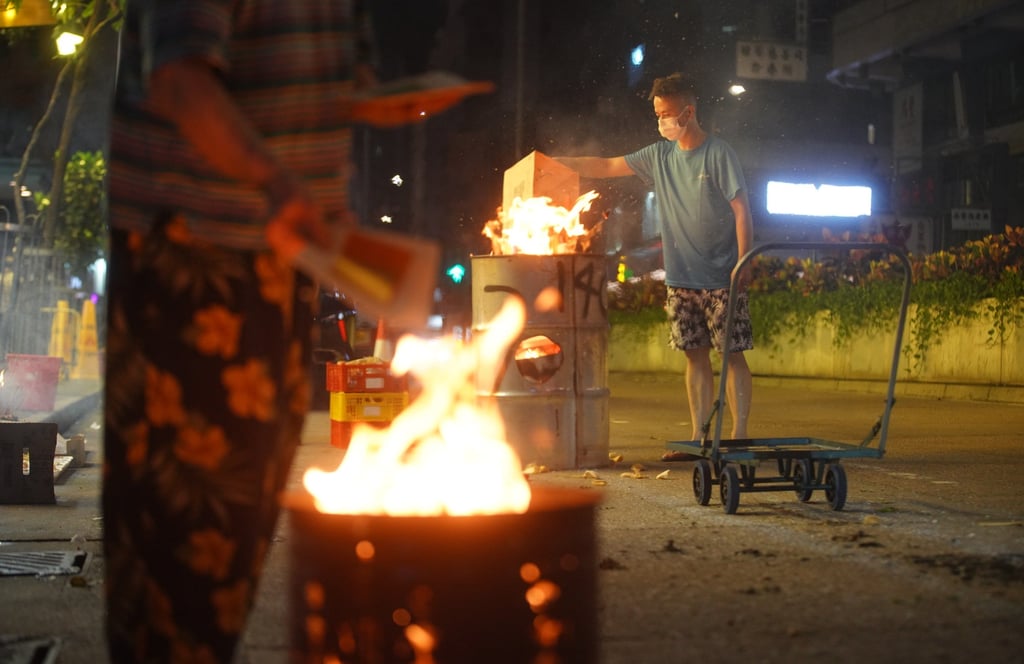How Hong Kong gets Hungry Ghost Festival all wrong, following superstitions not rooted in its Buddhist origins
- Hong Kong celebrates the Hungry Ghost Festival a day earlier than Chinese communities in Southeast Asia, and there are a couple of theories as to why
- From avoiding char siu restaurants to making lavish offerings for spirits of deceased relatives, some city customs are the products of confusion and pop culture

The Hungry Ghost Festival, or Yu Lan Festival, falls on August 12 this year in Hong Kong, and will no doubt bring many residents and shopkeepers to the streets to burn incense and joss paper offerings for the spirits.
Occurring in the seventh month of the lunar calendar, the festival marks a period during which certain things are to be avoided in order to not attract unwanted attention from ghosts.
These include: opening new businesses, moving house, swimming at night, and getting married – historically, hotels would offer discounts for wedding banquets at this time of the lunar year.
The interesting thing is that Hongkongers have misconstrued the entire occasion, and some beliefs, practices and taboos surrounding Hungry Ghost Festival in the city are merely a mishmash of local superstitions that have little grounding in the origins of the festival.

The most monumental misconception by Hongkongers is the date of the festival. It is widely known that Hungry Ghost Festival falls on the 15th day of the seventh month of the lunar calendar, and that date is consistently adhered to in places like Malaysia, Singapore, Taiwan and Thailand.